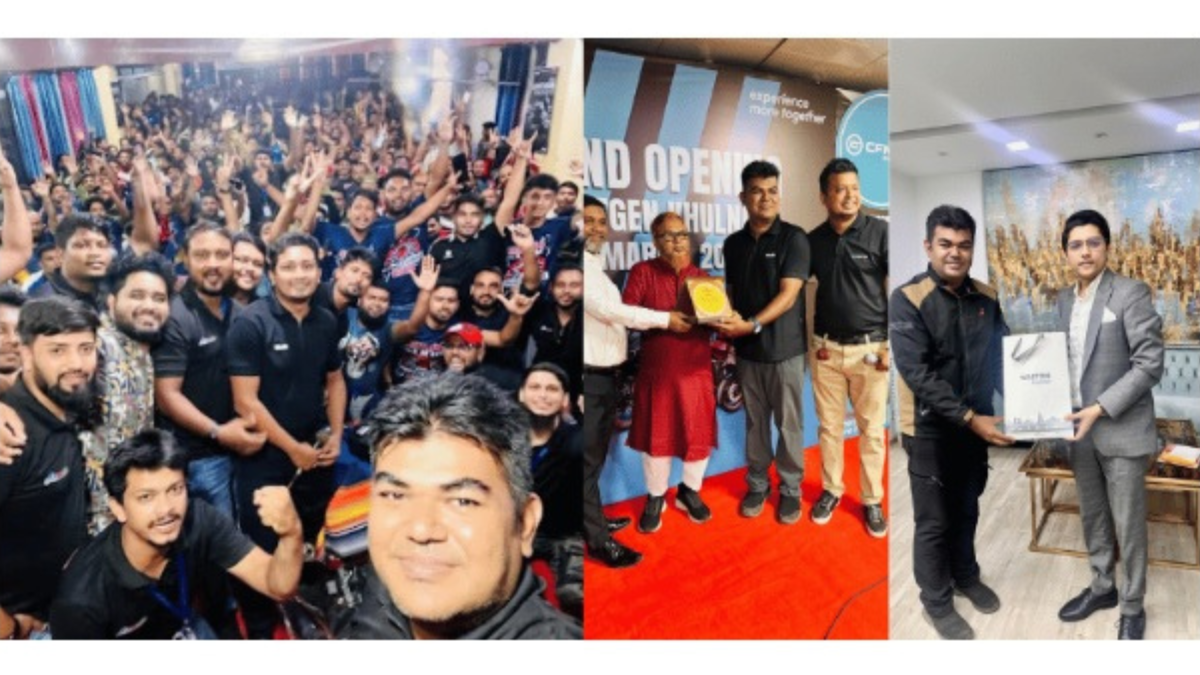
Journalist and columnist Abdul Gaffar Chowdhury. COURTESY
Abdul Gaffar Chowdhury, a journalist and columnist best known for writing the lyrics to ‘Amar Bhaier Rokte Rangano’ – a tribute to the martyrs of the 1952 Language Movement, has died at the age of 88.
During his student life, he wrote the elegy for the language martyrs which confirmed his glory as a lyricist for eternity. Known as the “Ekusher Gaan,” the song was first tuned and composed by Abdul Latif, and later recomposed by Altaf Mahmud in 1969.
He passed away at a hospital in London on Thursday morning, confirmed Bangladesh High Commissioner to the UK Saida Muna Tasneem.
“Gaffar Chowdhury had been in hospital for the past few days,” she said. “His daughter told me that he died at 7 am Thursday morning. We are deeply saddened at the loss.”
Gaffar Chowdhury witnessed many turning points in the history of Bangladesh.
He was the editor-in-chief of the weekly Joybangla, the mouthpiece of the Mujibnagar government of 1971. Though he had lived in London since 1974, he was always vocal in support of the Liberation War, Bangabandhu and liberal values.
Despite living abroad, he regularly wrote political commentary and discussed contemporary issues in Dhaka newspapers. He also wrote poems, stories, novels, plays, memoirs and essays.
Gaffar Chowdhury suffered from diabetes and kidney disease and was admitted to North Week Hospital in London two months ago. His daughter Binita Chowdhury died in April while he was in the hospital.
Binita was the third of Gaffar Chowdhury's five children. She lived with her father in London and took care of him. She was 50 years old at the time of her death.
The Bangladesh High Commission in London says it is in touch with his family and will inform the media once decisions are made regarding his funeral service.
President Abdul Hamid, Prime Minister Sheikh Hasina, Speaker Shirin Sharmin Chowdhury, Information and Broadcasting Minister Dr Hasan Mahmud, different ministers, and distinguished personalities expressed profound shock and sorrow at the demise of Gaffar Chowdhury.
In a condolence message, the president said that Bangladesh has lost a pioneer who was progressive, creative, and believed in the spirit of the Liberation War. His immortal song on language movement gave immense courage and inspiration to the Bengali nation during the Liberation War.
In a separate message of condolence, the prime minister prayed for the eternal peace of the departed soul and conveyed deep sympathy to the bereaved family.
Gaffar Chowdhury continued his works throughout his life to present the actual history in front of the nation supporting the pledge of the Father of the Nation to build Golden Bengal and upholding the non-communal spirit of Bangalees,” she said.
Sheikh Hasina said that during the Liberation War Gaffar Chowdhury encouraged the freedom fighters through his writings in the Bangladesh Government registered weekly ‘Joy Bangla’.
Speaker Shirin Sharmin Chowdhury, Road Transport and Bridges Minister Obaidul Quader and Foreign Minister Dr AK Abdul Momen have also expressed deep shock at the death of the eminent journalist
Son of a landlord and anti-British movement veteran Hazi Wahed Reza Choudhury, Gaffar Chowdhury graduated from Dhaka University in 1959 and came to England on 5 October 1974, where he lived settled.
But he was a frequent visitor to his homeland and wrote newspaper columns regularly keeping a close touch with Bangladesh and an eye on the country's affairs.
Before moving to Britain, Chowdhury worked as a journalist in different national newspapers in Dhaka and during the 1971 Liberation War, he worked for Joy Bangla, Jugantar and Anandabazar Patrika.
In the UK, Chowdhury founded a newspaper called the Notun Din while during his career as a journalist he authored 35 books like "Dan Pithe Shawkat", "Chandrodwiper Upakhyan", "Nam Na Jana Bhore", "Nil Jamuna", "Shesh Rajanir Chand" and "Polashi Thekey Dhanmondi".
He also produced a film on Bangabandhu's assassination titled "Polashi theke Dhanmondi".
His contributions to Bangla literary world was acknowledged even before Bangladesh's independence while he received Bangla Academy Literary Award back in 1967. He was awarded Sadhinota Padak in 2009.
Chowdhury was also the recipient of Ekushey Padak, Unesco Literary Award, Bangabandhu Award, Shanghati Lifetime Achievement Award.
He went to the United Kingdom for the treatment of his wife and could not return to Bangladesh for 22 years after Bangabandhu's August 15, 1975 assassination along with most of his family members.












0 Comments